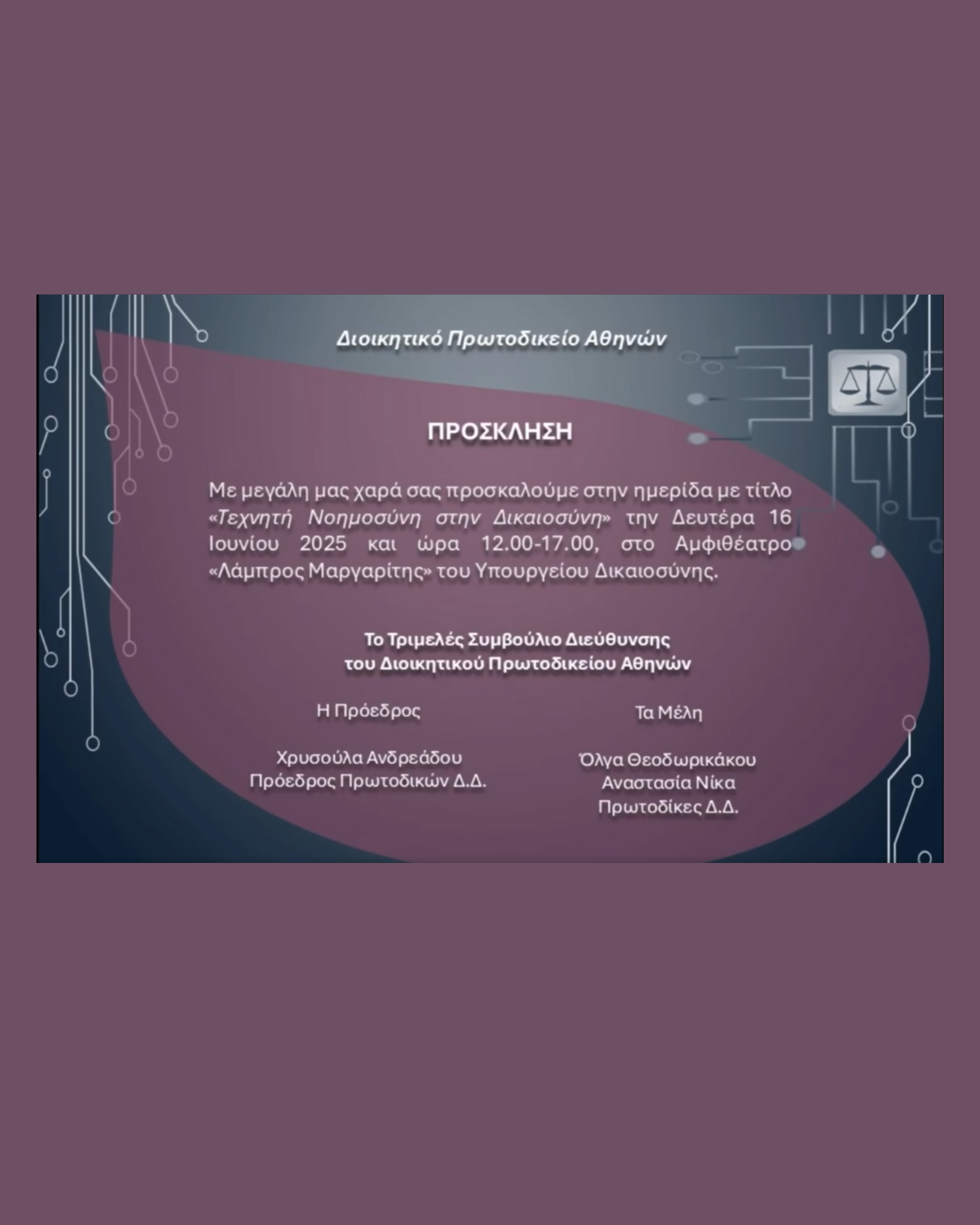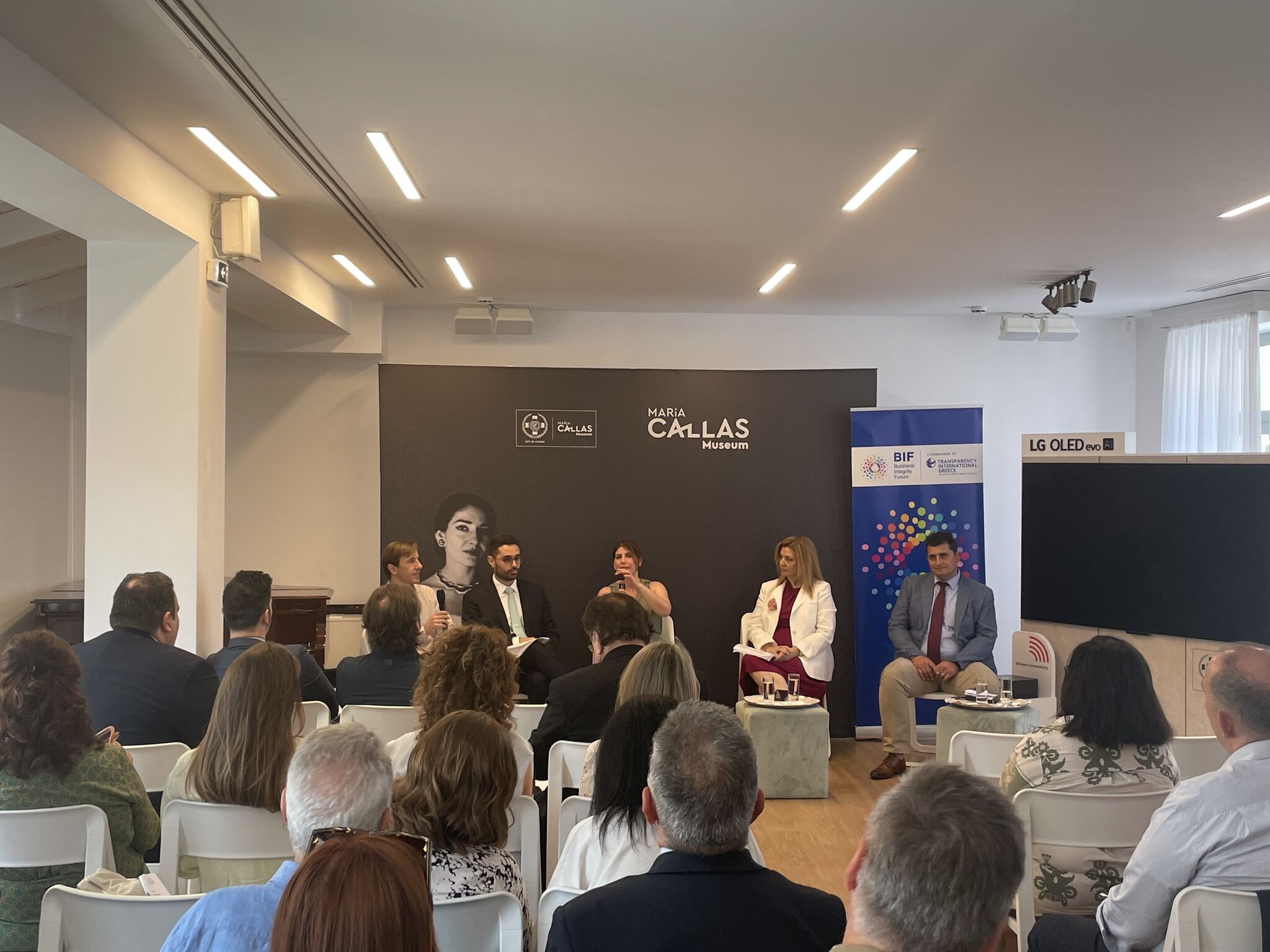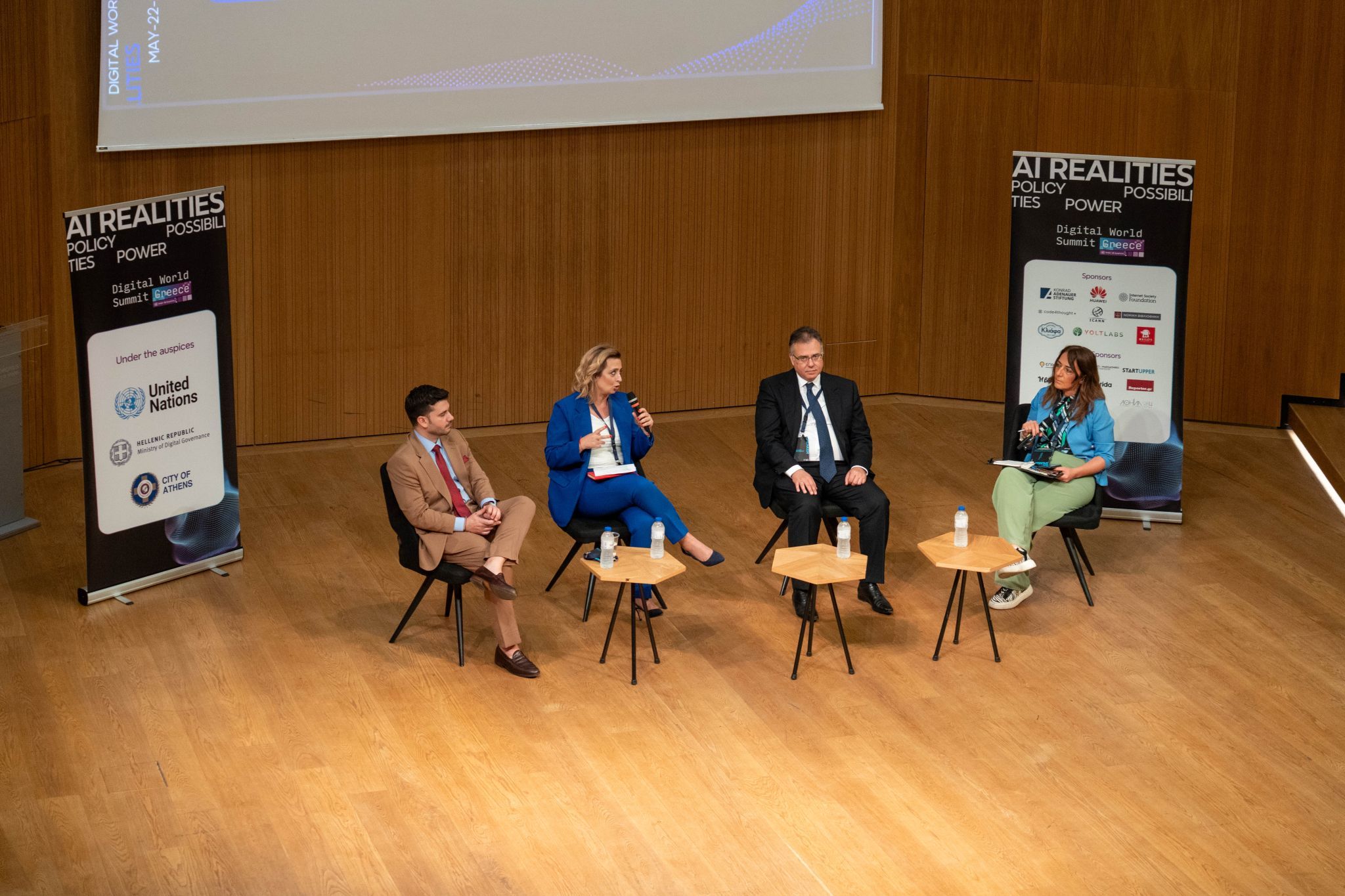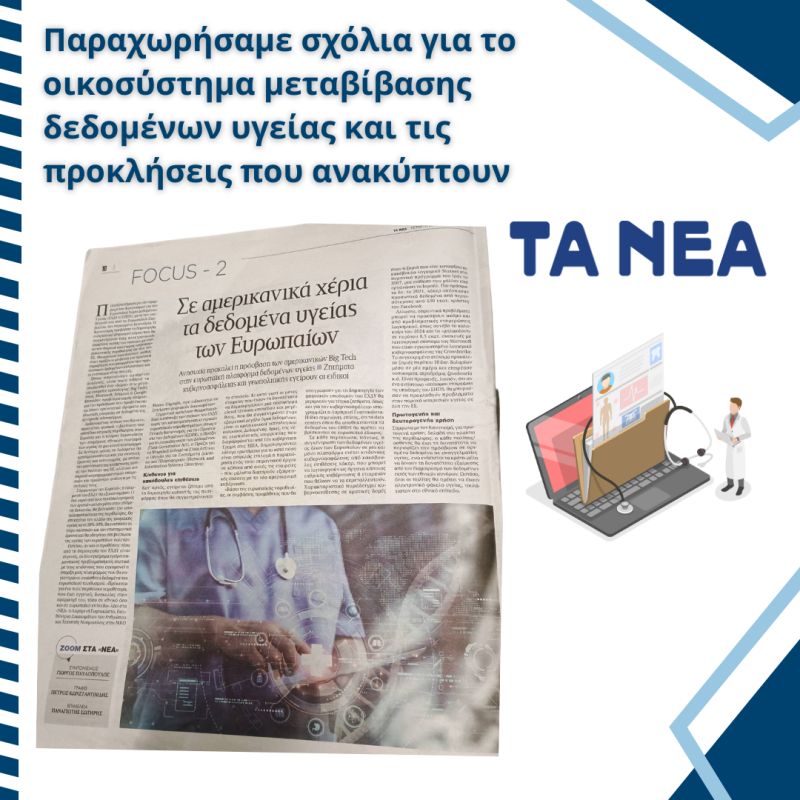Homo Digitalis successfully completed its presentation at a conference of the Ministry of Justice & the Administrative Court of First Instance of Athens on Artificial Intelligence
On Monday, June 16, 2025, the Ministry of Justice hosted a conference on “Artificial Intelligence in Justice”!
In the third discussion panel titled “Limitations and Risks”, Homo Digitalis was represented by Stefanos Vitoratos, Co-founder of Homo Digitalis and Partner at Digital Law Experts (DLE).
The discussion was moderated by Sophia Papadimitriou, with speakers:
Lilian Mitrou, Professor at the University of the Aegean, President of the Institute for Privacy Law, Personal Data and Technology
Ioannis Angelou, Administrative Court Judge, PhD
Aris Dimitriadis, Member of the Ethics Committee of the AI Catalyst Group, Executive Director of Regulatory Compliance and Corporate Risk Management at OTE Group
The conference was organized by the Administrative Court of First Instance of Athens, with the support of the AI Catalyst Group!
We announce the creation of the Pega-Coalition!
Together with the organizations Data Rights, Irídia – Centre per la Defensa dels Drets Humans, Társaság a Szabadságjogokért – Hungarian Civil Liberties Union, Gesellschaft für Freiheitsrechte e.V., Fundacja Panoptykon and Share Foundation, we announced today in Brussels the network “Pega-Coalition.”
The network aims to coordinate legal actions as well as advocacy efforts against spyware, both at the European level and nationally, in the countries where our organizations operate, namely Germany, Greece, Hungary, Poland, Serbia, and Spain.
We have already collaborated with these organizations on related legal actions, such as the successful filing of an amicus curiae intervention in the case of Brejza and Others v. Poland (applications nos. 27830/23) before the European Court of Human Rights in February 2025.
We recall that the Greek Government, under Articles 13 & 47 of Law 5002/2022, has been preparing for over a year now a draft Presidential Decree concerning the conclusion of contracts by state bodies for the procurement of surveillance software or devices. On 19/6/2025 we were informed by the Hellenic Data Protection Authority (HDPA), in response to our inquiry, that it has received the said draft decree and requested further clarifications, which it is still awaiting.
You can read more about the “Pega-Coalition” network here.
Homo Digitalis successfully participated in the Business Integrity Forum of Transparency International
Today, Homo Digitalis took part in the 17th Round Table titled “Greek Business and Transparency: Building Trust and Competitiveness”, organized within the framework of the Business Integrity Forum, a commitment of Transparency International Greece!
Specifically, Lamprini Gyftokosta from our team moderated the panel “AI and Ethics in Business Compliance”, with contributions from Alexandros Nousias (Institute of Informatics & Telecommunications at NCSR Demokritos), Panagiotis Sourlas (Growthfund, the National Fund of Greece), Irene Papadopoulou (ΣΟΛ Crowe), and Sofoklis Karapidakis (Metlen Energy & Metals).
We warmly thank the organizers and the Executive Director of Transparency International Greece, Angelos Kaskanis, for the kind invitation!
Homo Digitalis successfully participated in the Digital World Summit Greece 2025
Last week, the Co-Founder of Homo Digitalis, Stefanos Vitoratos, spoke at the Digital World Summit Greece about the next steps in the evolution of Artificial Intelligence, what we can expect over the next decade, and best practices that can help create a safer environment.
“Artificial Intelligence is not going to wipe out human labor; as in every phase of technological transition, what changes is not the need for work, but the environment and the way it is carried out. What is required is adaptation and active participation in the new reality,” he emphasized.
You can watch highlights from the speech in the video here.
We warmly thank the organizers for this opportunity to collaborate, as well as the fellow speakers and the panel moderator for the fruitful discussion!
Homo Digitalis speaks at Digital World Summit Greece
Speaker Announcement | Digital World Summit Greece 2025 – 22/05/2025
We are pleased to announce that Stefanos Vitoratos will represent Homo Digitalis as a speaker on the second panel of Digital World Summit Greece 2025, titled:
“The Future of Artificial Intelligence: The Next Decade in AI Development and Best Practices.”
Register here to attend the conference for free, either in person at Technopolis City of Athens or online.
Stefanos Vitoratos is a Co-founder of Homo Digitalis and Managing Partner at Digital Law Experts (DLE), specializing in data protection compliance, cybersecurity, and artificial intelligence.
He is a member of the European Data Protection Board (EDPB) Pool of Experts for Greece, Co-Chair of the Hellenic Knowledgenet Chapter of the International Association of Privacy Professionals (IAPP), and has been awarded the title Fellow of Information Privacy (FIP) by IAPP, holding both CIPP/E and CIPM certifications.
He is also a member of the Research Group of the Center for AI & Digital Policy (CAIDP) and collaborates with the European Commission as an Ethics Expert for funded projects. In the past, he has served as a consultant for leading companies in Greece as well as at the Permanent Representation of Greece to NATO.
In parallel, he is pursuing his academic path as a PhD Candidate in the Department of Public Administration at Panteion University, focusing on AI in public administration and public-private cooperation in relevant projects. He holds a Law degree from the National and Kapodistrian University of Athens, and two Master’s degrees from City, University of London and Panteion University.
He frequently delivers professional seminars, publishes scholarly articles, and participates in academic conferences as a speaker or moderator.
Homo Digitalis is once again participating in the Digital World Summit Greece "AI Realities: Policy, Possibilities, Power"
The Digital World Summit Greece returns in 2025, taking place in Athens on Thursday, May 22, to shape the ongoing discussion around the developments and realities of Artificial Intelligence at a technological, political, social, and cultural level.
This year’s conference focuses on three key pillars:
Opportunities and challenges for Greece as a hotspot of technological advancement
The next steps in AI evolution and best practices
Safe development and use of Artificial Intelligence
Renowned speakers and representatives from the government, private and public sector, civil society, as well as the technical and academic community, will gather to discuss and propose solutions regarding crucial aspects of AI use and governance at national, European, and global levels.
The event will conclude with networking drinks.
Thursday, May 22 | 10:00–18:30 at Technopolis City of Athens– “Miltiadis Evert” Amphitheatre & Online
Free admission (registration required). Secure your spot and help shape the Future of Artificial Intelligence here.
Stay tuned to Digital World Summit Greece‘s channels for more updates on themes and speakers!
Interview of Homo Digitalis in the newspaper "TA NEA" on the ΕHDS
On the occasion of the entry into force of the provisions of Regulation 2025/327 regarding the European Health Data Space (EHDS), journalist Petros Konstantinidis and the newspaper TA NEA published an article highlighting the concerns surrounding the access of American Big Tech companies to the European health data platform.
What are the cybersecurity and geopolitical issues that arise?
Our team was represented by Lamprini Gyftokosta, who provided relevant comments, which you can read in the online version of the article available here.
We thank the journalist for his interest in our work.
The provisions of Regulation 2025/327 will come into effect on March 26, 2027, and will be of significant concern in the near future.
Homo Digitalis Interview on ANT1's show "Your Business Can" with Fai Chrysοchoou
On Sunday, March 9, Homo Digitalis was featured on ANT1’s program “Your Business Can”, hosted by journalist Fai Chrysοchoou.
A huge thank you to the journalist and her team, including Toni Aravadinos, for the kind invitation and their interest in our work!
Key Discussion Points
Representing Homo Digitalis, Eleftherios Chelioudakis spoke about:
–Artificial Intelligence and its regulatory framework
–How legislation acts as a driver of innovation, trust, and entrepreneurship
The Reality of AI & Business Growth
Many non-EU tech companies have historically followed the “Move Fast and Break Things” model, leading to:
–Numerous violations & fines imposed by European regulators
–Social polarization and addiction to social media
–The spread of misinformation
Why Compliance is an Advantage
–Businesses that comply with regulations gain a competitive edge
–Strong legal foundations enable sustainable growth
-Compliance fosters trust, stability, and access to the unified digital market
Ultimately, legislation does not hinder business—it fuels long-term success and strengthens democratic societies!








